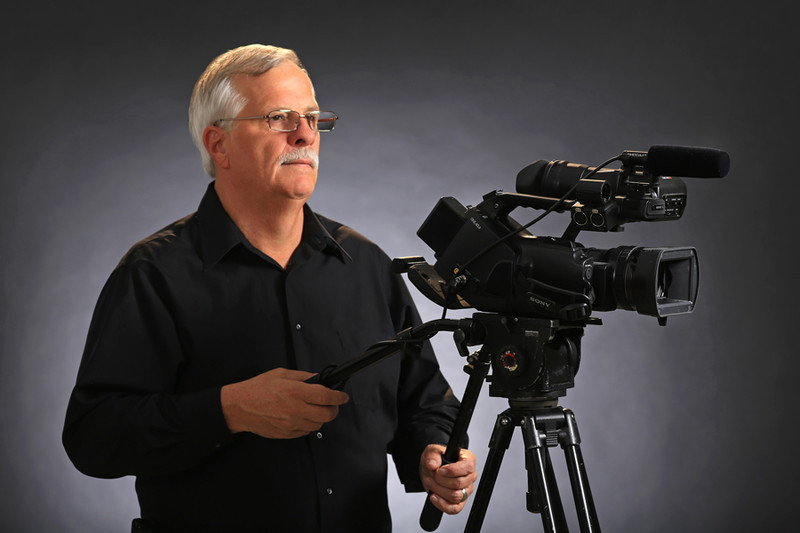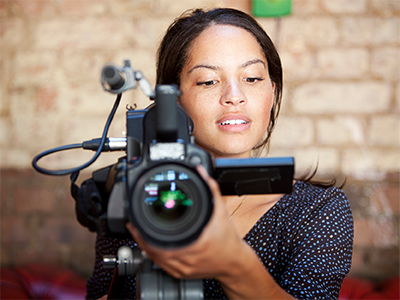Skilled Legal Videography for Trials.
Skilled Legal Videography for Trials.
Blog Article
The Duty of Legal Videography in Depositions and Tests
Lawful videography has actually become a vital tool in both depositions and trials, offering a complex method to recording witness testaments. By recording not only the talked word but likewise the subtleties of non-verbal communication, this medium improves the integrity of testaments and protects essential proof for future procedures. As attorneys significantly identify its value, it motivates a deeper examination of how these visual records can affect juror perceptions and test results. What implications might these advancements hold for the future of lawful technique?
Relevance of Legal Videography
Legal videography plays a crucial function in the paperwork and discussion of depositions and trials. This specific field incorporates technical abilities with legal understanding to produce a dependable document of process that can dramatically affect case results. The aesthetic aspect of lawful videography enhances the understanding of witness testament, allowing jurors and judges to observe not just the spoken words yet also the attitude, emotions, and body language of the witnesses.

The relevance of lawful videography prolongs beyond the court; it likewise plays a vital function in protecting proof for future referral, whether for allures or additional lawsuit. As such, its combination right into the lawful process is necessary for guaranteeing a reasonable and exact representation of the realities, inevitably adding to the search of justice.

Process of Legal Videography
While capturing the nuances of depositions and trials, the procedure of lawful videography includes a number of critical steps that make certain top notch, accurate recordings. An expert legal videographer prepares by examining the situation products and recognizing the details requirements of the deposition or trial. This prep work includes acquainting themselves with the individuals and the context, which aids in recording relevant details.
On the day of the recording, the videographer establishes up the required equipment, which generally includes high-def electronic cameras, microphones, and correct illumination. Ensuring optimum angles and audio top quality is crucial, as it straight affects the effectiveness of the recording. The videographer communicates with lawyers and participants to establish protocols, making certain that everybody understands the recording process.
Throughout the deposition or trial, the videographer diligently tape-records the procedures, paying very close attention to both verbal and non-verbal signs. legal videography. This consists of capturing the temperament and reactions of witnesses and lawyers. After the session wraps here are the findings up, the videographer might modify the video for clearness and compliance with lawful criteria, producing a last product that properly mirrors the process for future referral and usage in legal contexts
Benefits in Depositions
The unification of videography in depositions uses many benefits that enhance the overall procedure of gathering evidence. One primary benefit is the capability to capture witness testimonies with aesthetic and acoustic fidelity, giving a more accurate representation of the witness's demeanor, tone, and body movement. This multidimensional method permits attorneys and courts to assess trustworthiness extra efficiently than typical written records alone.
Additionally, videographed depositions act as a powerful tool for preserving testament. Must a witness come to be not available for test, their videotaped deposition can be played in court, making certain that their evidence remains obtainable and pertinent. This aspect considerably decreases the risk of losing important details that can impact situation results.
Additionally, the usage of lawful videography promotes better prep work for attorneys. Assessing video footage permits legal teams to analyze and fine-tune their methods, identifying strengths and weak points in their situations. This primary advantage can bring about more compelling presentations in court.
Lastly, videography boosts the general professionalism of the deposition process, instilling self-confidence in clients regarding the thoroughness of their legal representation. By leveraging technology, legal professionals can considerably improve the effectiveness of depositions.
Influence On Trials
In many tests, the integration of videography can dramatically affect the presentation of evidence and the jury's understanding. Legal videography records witness testaments and essential evidence in a vibrant format, enabling jurors to engage with the material on several levels. This aesthetic part enhances the storytelling element of a test, providing context and psychological vibration that traditional text-based proof may lack.
Additionally, video recordings can work as powerful tools for impeachment during interrogation. When inconsistencies arise between a witness's previous statements and their courtroom testimony, video evidence provides an unbiased reference that can persuade jurors' point of views. This immediacy and clarity can bolster the reliability of a party's story while all at once threatening opposing disagreements.
In addition, the usage of videography can assist simplify intricate details, making it extra easily accessible to jurors that might struggle to realize detailed information presented exclusively via verbal testimony. By integrating visuals with acoustic details, lawful videography can improve retention and understanding, eventually influencing the jury's decision-making procedure. As click over here a result, the effect of videography in trials expands past simple looks; it plays an essential duty fit the lawful landscape and outcomes.
Future Trends in Legal Videography
As we look towards the future of lawful videography, several arising fads promise to improve its duty within the courtroom. One substantial trend is the assimilation of expert system (AI) in video clip evaluation and modifying - legal videography. AI can enhance the process of recognizing essential minutes in tape-recorded depositions, permitting attorneys to rapidly access relevant material, therefore boosting efficiency in case prep work
Additionally, the increase of digital truth (VR) and augmented fact (AR) innovations is expected to change just how jurors experience evidence. By immersing jurors in a simulated setting, these technologies can provide a more profound understanding of complicated circumstances, causing more informed considerations.

In addition, the boosting demand for remote depositions, accelerated by the COVID-19 pandemic, will likely proceed. Lawful videographers will certainly need to adjust to brand-new software application and systems to make certain high-quality recordings in online settings.
Lastly, the growing focus on data safety will certainly require stricter protocols for storing and sharing video proof. As the legal landscape evolves, legal videographers should stay abreast of these trends to preserve their relevance and performance in the judicial process.

Conclusion
In summary, lawful videography serves an essential feature in the judicial procedure, enhancing the stability imp source of depositions and tests. As innovation proceeds to advance, lawful videography is poised to additional change its role within the lawful landscape.
Report this page